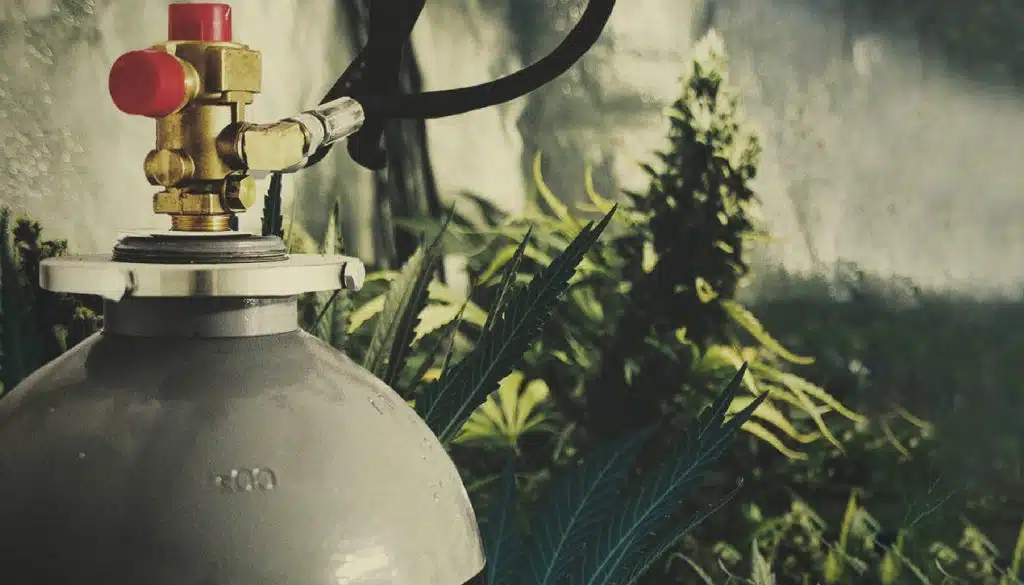Manitoba And Quebec Still Won’t Let You Grow

Manitoba And Quebec Still Won’t Let You Grow
It is unjust that Quebec and Manitoba have denied their citizens the right to grow up to four cannabis plants per household, as Canadian law entitles all citizens to this right.
Instead of working together to find a solution, both provinces are arguing over who has the right to regulate cannabis growth and whether it should be banned entirely. They both claim they need to keep it away from minors, but no one is offering a real solution.
Despite two groups actively challenging them, both provincial laws currently remain in effect. One group, in Quebec, successfully challenged the law in 2019, and another group in Manitoba is seeking to do the same later this year or early next.
The 2019 court ‘win’ is still stuck in the appeal process
A Quebec court overturned the province’s ban on home cultivation of cannabis in 2019, after a challenge from a Quebecer named Janick Murray Hall.
The judge in that case ruled against the provincial government’s ban, but the province quickly appealed the ruling. This means that their law stayed in place, pending appeal.
The appeal for that case has been ongoing since then, and the lawyer in charge, Maxime Guérin, says he expects a ruling to come down sometime this summer or fall.
Jesse Levoi, a resident of Manitoba, has filed a challenge to the slow progress of the same struggle in his province.
Federal vs. provincial jurisdiction
The tension between the provinces is partly due to the question of how much authority each province has over its own affairs.
The federal government argues that the criminal code’s jurisdiction over cannabis creates an allowance for legal access to the drug, including possession and cultivation.
The proposed legislation would place limits on the number of cannabis plants that could be grown, and would give provinces jurisdiction over how those plants are grown and how many are allowed. This would help to ensure that cannabis is grown safely and responsibly.
There are additional restrictions in place for cannabis cultivation. Property owners, landlords, and condo boards have the right to limit cannabis growth on their property, and municipalities can also place further restrictions on where and how cannabis is grown.
The majority of people who are authorized to grow medical marijuana for personal use are not subject to these restrictions.
The right to grow four plants
The federal government has stated that provinces cannot ban the growth of cannabis entirely, as this would go against the spirit of federal law. Provinces can, however, place restrictions on how it is grown.
Despite their differences, Quebec and Manitoba remain committed to finding a resolution.
Other provinces have set a limit of four plants or higher, but some have rules around how they are grown. All provinces also require any cannabis grown comes from seeds purchased through their government system.
The rules for growing cannabis at home vary by province. This means that you will need to research the specific regulations in your area in order to ensure that you are growing your plants legally. However, growing cannabis at home can be a great way to save money and have control over the quality of your product.
While some provinces have bans on homegrowing, others have rules on how you can grow four plants. This shows that there is a variety of ways that provinces approach this issue.
It is a requirement in British Columbia for residents to keep their plants out of view from the public. In New Brunswick and PEI, indoor plants have to be kept locked away, while outdoor plants must at least be behind a fence and out of public view. Newfoundland and Labrador do not allow cannabis to be grown outside at all.
Attorney says banning it entirely is taking it too far
Guérin believes that the recent ruling banning abortion entirely goes too far. It is unclear whether either side will appeal the ruling to the Supreme Court.
He said that while his team is prepared to challenge the province in the Supreme Court, he is unsure whether the province would be willing to take the risk of potentially losing and setting a precedent for federal jurisdiction over Quebec’s rules.
Guérin explains that if they lose in the court of appeal, they will go to the Supreme Court. He still has some doubts that if they win the appeal, the government will go to the Supreme Court, because he thinks it’s clear that they have a huge chance of success. But he acknowledges that it’s still a possibility.
He believes that some of the motivation behind the government’s actions is the typical conflict between provincial and federal politics, but there is also a general dislike of cannabis itself.
In French, there is an expression for when someone is trying to take too much for themselves: “Tirer le bord de la couvert.” This is what I believe the provincial government is doing – they are trying to be more independent and take more power away from the federal government.
I believe that those who oppose cannabis legalization do so not because of concerns about the distribution of power, but because they simply do not like the plant. However, there is a mix of both motivations at play.
Jesse Levoie, a Manitoban, has also filed a constitutional challenge in 2020 to his province’s ban on growing cannabis at home. He expects the case to make it to court late this year or early next, due to a court backlog caused by the covid pandemic.
Manitoba has asserted its right to ban residents from growing cannabis, citing the need to protect children, as Quebec has done. Levoie hopes to overturn the ban and says they have been observing how the situation unfolds in Quebec.
Although many people are able to grow their own plants at home, there are still two provinces in which cultivation is not allowed.
He has been holding events around Winnipeg to raise awareness for his cause, including one in August to mark the one-year anniversary of his challenge.
Provinces motivated by an anti-cannabis attitude
Daniel Chornopyski with Chornopyski Law in Manitoba, Levoie’s lawyer, says that while he cannot speculate on the province’s larger goals, he believes that the province’s attitude towards cannabis is certainly negative.
It is clear that the government of Manitoba views cannabis as a crime and punishment issue, as evidenced by their legislative approach and their response to this action.
I’m sorry to hear that the current government is choosing to approach homegrown cannabis in a way that is contrary to Federal guidelines. I’m confident that the right direction will be found and that homegrown cannabis will soon be legalized in accordance with government guidelines.
He suspects that, like in Quebec, the Manitoba government will appeal any ruling that goes against their ban on home-grown cannabis.
The outcome largely depends on the government in power and what the court decides. If the court rules in our favor and the current provincial government stays in office, I expect an appeal.
We are committed to achieving justice for all Manitobans and will exhaust every avenue to reach a final determination. We hope this process does not take years, but we are prepared to see it through to the end.
Conclusion
If you are interested in cannabis and THC products, check out Ganja West online dispensary at ganjawest.co!

